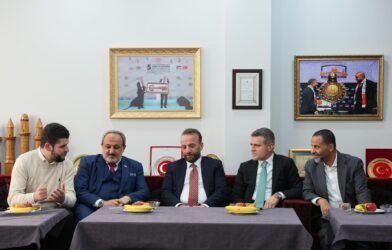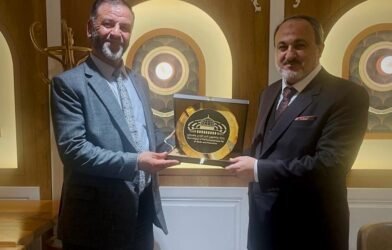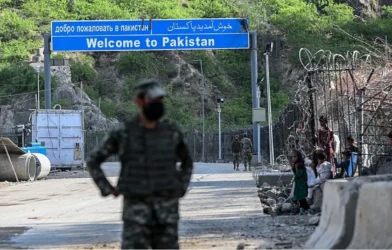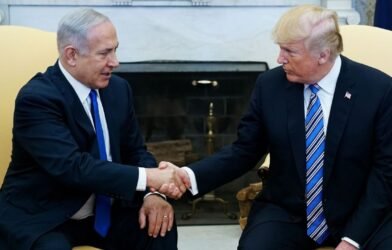Subtotal $0.00
Those who follow the news of India in the Arab media notice the absence of a logical explanation for the anger of Indian Muslims and their massive demonstrations regarding India's Citizenship Amendment Act (CAA), which grants Indian citizenship to persecuted non-Muslims from neighboring countries. On the surface, it appears that Muslims are preventing persecuted non-Muslim minorities from obtaining Indian citizenship, which turns them from victims of this law into aggressors against the rights of the underdog.
To clarify this ambiguous situation, it is necessary to understand the historical backgrounds that surrounded the issuance of the law, its position in the general political context, and how it constituted the straw that broke Muslims' patience with the discriminatory policies against them since independence, which led to a sharp decline in their representation in state institutions and parliament, the spread of poverty and unemployment, the decline in services, and the weak empowerment of youth and women among them, as explained by a famous government report that is the most prominent reference when discussing this section, known as the Sacher Committee report in 2005, after the judge who headed the government investigation committee on allegations of marginalization of Muslims.
Since the beginning of the last century, the idea of Muslims separating into their own state emerged in very complex circumstances, regardless of who is behind this idea and how it happened, it happened in 1947, when the Muslim-majority areas in India, what was known as East Pakistan (now Pakistan) and West Pakistan (now Bangladesh), separated into a state. The rest was called the State of India. When the separation took place, some Muslim elites from northern India migrated to Pakistan, and some non-Muslims who lived in the Muslim-majority areas moved to India.
It was believed among a wide spectrum of Hindus that Muslims had gotten their share of India's historical land and that those who remained should leave the country, but this was not realistic, mainly because Muslims constituted about 15 percent of the population, which meant hundreds of millions, in addition to the fact that sectarianism in India and the establishment of a Hindu religious state, in addition to clashing with the ideology espoused by most independence leaders, such as Mahatma Gandhi and Nehru, is impractical. Hinduism, as defined by the Supreme Court, is a culture and not a religion in the common sense of Islam and Christianity, which could lead to discord within Hindu religions, as well as with various minorities, including Muslims. Therefore, what the independence leaders chose was a secular state in which all citizens are equal before the constitution, which was considered a stab in the back by Hindu nationalists, and as a result, Mahatma Gandhi was assassinated by one of them on January 30, 1948, less than six months after the declaration of independence.
One of the most important groups that sought to transform India from a secular state to a Hindu state is the National Volunteer Organization, also known as the Sangh or RSS. This group is the largest non-governmental organization in the world, with about six million members, and has worked since its establishment in 1924 to promote its ideology known as "Hindutva", which seeks to transform India into a Hindu land (Hindu Rashtra), through the establishment of a wide range of institutions in various fields of life, especially the political field. Although she failed to succeed in coming to power for a long time, she succeeded in the early 1990s (1992 AD), after leading a campaign that led to the demolition of one of the oldest Muslim mosques in India (Babri Masjid), to come to power through her political party, the Indian People's Party (BJP). However, she did not last long in power, then returned in the 2014 elections to the government headed by Narendra Modi, and strengthened her presence in the elections held in April this year, and through the votes she obtained in the central and local parliaments, she was able to change the constitution, which many were warning against, who consider the constitution the most prominent guarantee to preserve India's unity and civil peace.
Upon returning to power and appointing the architect of its successes, Amit Shah, as Home Minister, the Indian People's Party announced the repeal of Article 370 of the Constitution, which grants Jammu and Kashmir a special status, and placed the state under central rule, the only state that was ruled by Muslims, and then announced the application of what is known as the National Register of Citizenship Act (NRC) to all of India, as happened before during the last session in Assam in eastern India, but the application of the National Citizenship Register in Assam resulted in unexpected damage, as it turned out that those who were stripped of their Indian citizenship in accordance with this law, and the number of those who were stripped of their Indian citizenship after scrutiny, about one million and one thousand people, were mostly non-Muslims. The number of those who were stripped of their Indian citizenship according to this law, and their number after the audit is about one million and 900 thousand people, most of them are non-Muslims, which means that applying it to all of India will harm Hindus more than Muslims, so the government took the initiative to solve this issue by re-granting citizenship to those stripped of it by the Nationality Registry Law, from non-Muslims, and fixing it for Muslims, which was first known as "CAB", and then became known after its approval in both houses of Parliament as "CAA", which made the general Muslims feel threatened and took to the streets in hundreds of thousands to demonstrate. Dozens of people were killed and tens of thousands were arrested. The government announced that the law had been misinterpreted, and the Prime Minister even announced that the application of the National Citizenship Register Act to the whole of India had never been discussed, despite the fact that it was available in the records and minutes of Parliament, as the ruling party leaders had been saying and threatening to do.
In addition to Muslims feeling threatened and taking to the streets, this has provoked many non-Muslims who see the People's Party's ability to change the constitution as a dangerous matter that will destroy India's future as a country for all its citizens, which they say stems from the ideology adopted by the party, not an isolated or accidental matter, and call for the overthrow of the ruling party by all means.
In conclusion, it does not seem that the current crisis in India will end soon, and it is likely to escalate if the ruling party does not reverse its policies (which is unlikely) and many angry people will join the opposition day by day, and this may be accompanied by an increase in the level of street violence, which the Indian government and major parties must take into account, as it will have serious implications for India's political, economic and social future.









